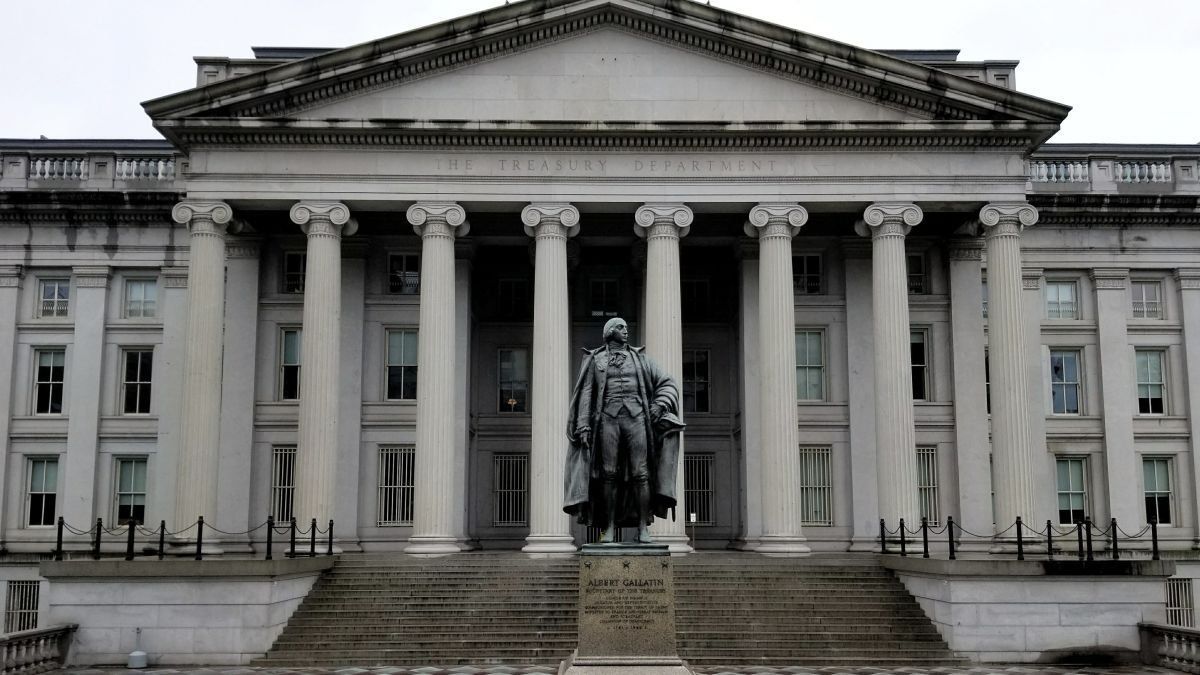In the last four weeks, The United States Treasury Department held at least four meetings to learn first-hand about the economic situation in Argentina. Three sources who requested confidentiality confirmed the meetings held in that state division, very close to the White House, which President Biden still occupies.
Aware of the challenge that the new negotiation that was launched with the IMF will imply for Argentina to agree on the main points of a new agreement, and of the need for fresh funds to achieve the reforms committed by President Milei, the economic wing The US government sought to approach the problem that the economic crisis in Argentina implies.
One of those in charge of coordinating these meetings was Deputy Treasury Secretary Michael Kaplan, who met with two important Argentine bankers and analysts.who asked for their identity to be reserved. The fundamental fact is that it was Kaplan himself who requested, through his extensive agenda of Argentine contacts in Washington, the possibility of summoning them to the building he occupies on Fifteenth Street and Pennsylvania Avenue in Washington, DC, not far from the White House. . In this sense, other meetings took place. For example, the New York Federal Reserve also wanted to learn first-hand about the situation of the Argentine economy.
The social cost of adjustment and political support for the economic plan
As far as he could know Scopein all the meetings, Kaplan’s expressed concern was to know the strengths of the program implemented by President Javier Milei, but above all he sought the opinion of experts on the challenges facing the Argentine administration. Along these lines, according to sources who participated in those meetings, Kaplan asked again and again if the adjustment put in place was “sustainable.” and if the social cost could generate some type of setback in the application of the policies designed by Minister Luis Caputo, with a direct relationship with Kaplan. Also, The US official mentioned the need for the implemented reforms to achieve the approval of Congress.
As this medium was able to reconstruct, Kaplan, one of the main representatives of the United States Treasury with direct access to the IMF, was extremely interested in the “advances” of President Javier Milei in economic matters, mainly the drop in inflation and the committed zero deficitwhile considering that the country “you need a roadmap” in order to convince the IMF of the need for a new program with fresh money.
First the IMF, then the Treasury: the route that Kaplan recommended to Argentina
His position regarding the possibility of “giving a hand” to Argentina on the IMF board was relevant – and he repeated it with different interlocutors – “in order to help Argentina we need the government to present an economic program.” and goals that can be met and agreed upon with the IMF staff”.
Kaplan agreed that there are concerns about the Milei government’s ability to meet its debt obligations without drawing on Central Bank reserves, especially with major maturities on the horizon. He also mentioned that there are divided opinions on whether fiscal adjustment will lead to sustainable growth in the long term, with some economists suggesting that a more balanced approach may be necessary.
Linked to the relationship with the IMF, one of those attending the meeting commented that Michael Kaplan said: “On the IMF board, Germany and Japan usually tell us that Argentina is our problem, the United States’, and that we have to take care of it, but we need the Fund staff to do their job first.that they achieve a program that is achievable with Argentina and if this takes place, then we can help.”
The goals and what is coming: there is no money
Monday of this week was the cut-off day for the outline of program goals with the IMF signed by Argentina at the beginning of 2022. Thus, after two and a half years of duration, the mechanics of the Extended Fund Facility program ended ( EFF) where the organization wired dollars to the country so that it could cover the maturities of the previous agreement – the Stand By of the year 2018 -, given the difficulties in paying that debt. It must be remembered that the return of the original US$45 billion of the loan given to Argentina is planned for the next stage, between 2026 and 2032.
Negotiation of this new agreement is already underway, although in an embryonic stage given the state of the talks. In the midst of this crossroads, Argentina’s relationship with China also becomes relevant. Beijing’s search for financing and diplomatic support may influence negotiations with the IMF, creating a more complex framework for decisions that must be made in the short term. As Ámbito learned, Milei’s new strategy with respect to China aims to renew the Central Bank’s reserve agreements and facilitate the arrival of investments, although None of this would have been anticipated by the White House..
Source: Ambito
David William is a talented author who has made a name for himself in the world of writing. He is a professional author who writes on a wide range of topics, from general interest to opinion news. David is currently working as a writer at 24 hours worlds where he brings his unique perspective and in-depth research to his articles, making them both informative and engaging.




